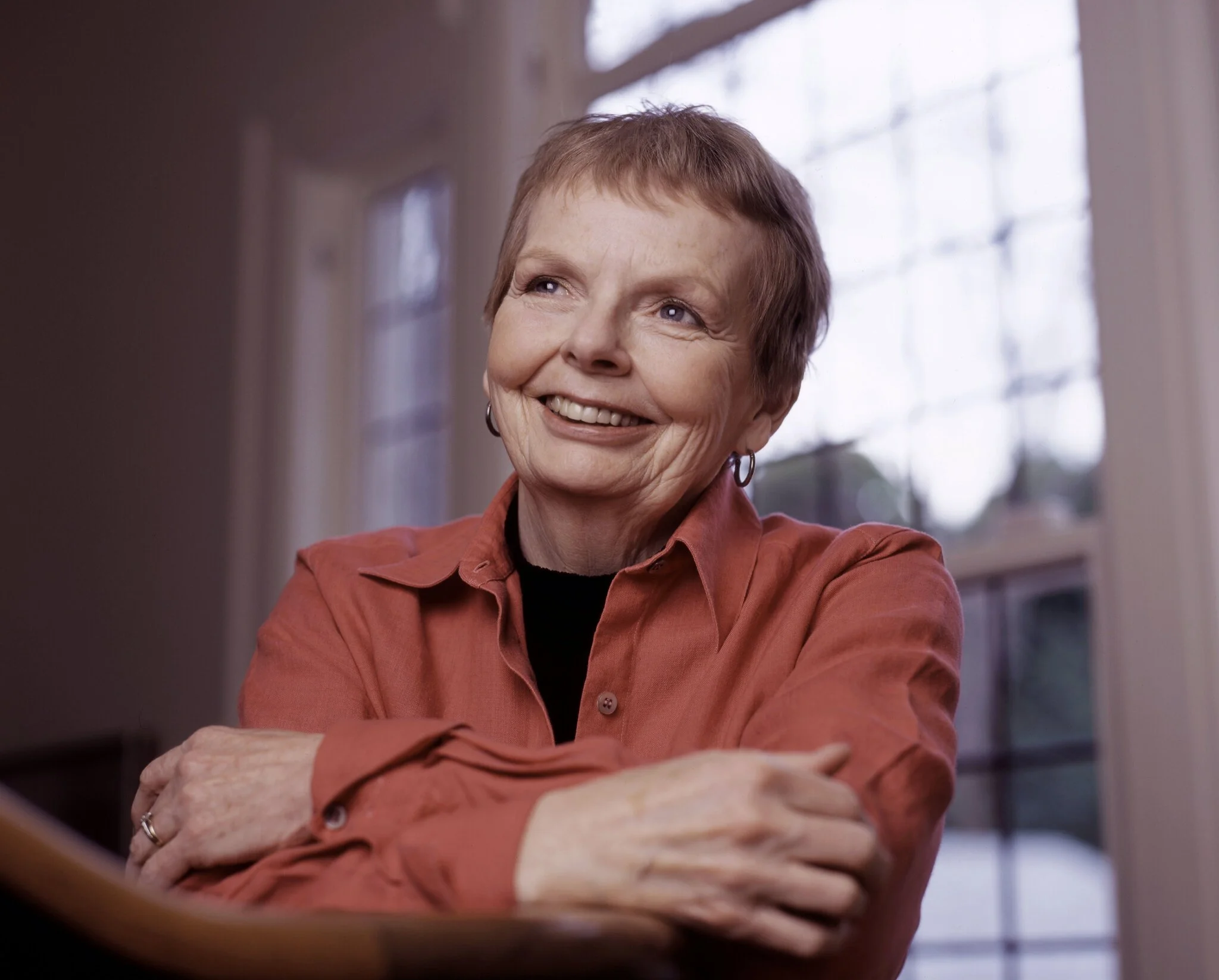Carol Shields: Startle and Illuminate
More is what the indecently curious always want. They want the details, and no detail is too small to be of interest.
- Startle and Illuminate: Carol Shields on Writing
Carol Shields (photo by Christopher Morris/Corbis, via Getty Images)
What Nicholas Giardini remembers most about his late grandmother Carol Shields were the bedtime stories, and hugs that lasted a long time. He was 11 when the Pulitzer prize-winning author died of breast cancer in 2003. In spring 2013 his mother, Anne Giardini (Carol’s daughter), asked if he would help put together a book of Carol’s thoughts on writing. He was finishing up his undergraduate studies at the University of Ottawa. He jumped at the chance. For the next several months he holed up at the nearby Library and Archives Canada, revelling in her papers. “It was the best summer of my life,” he said. “I had not known Carol Shields as more than a grandmother. I gained a more three-dimensional image. The collection is vast and varies from scraps of notes to letters to well-formulated essays. But I appreciated most the notes in the margins she had written to herself,” recording questions and thoughts her readers had shared.
If there is anything Shields celebrates it is the literary possibilities found in the margins—the workaday domestic spheres where she located her most memorable novels, works like Larry’s Party and The Stone Diaries. The book is called Startle and Illuminate, a phrase borrowed from an essay of Margaret Atwood’s. It refers to what Shields believed books should do—to the minor epiphanies both light and dark they should afford their hungry readers.
Startle and Illuminate is woven together from interviews, lectures and letters, odds and ends. It blends meditation on craft with pages of straightforward, useful advice. Shields, who taught creative writing at the University of Winnipeg and Humber College, was obviously a committed teacher. “Still, I was surprised to find she had considered the topic so deliberately and so deeply,” says Anne, a lawyer, author and a former chancellor of Simon Fraser University.
“After collecting all the research material, Nicholas came home to Vancouver,” Anne says. “We sat at the large coffee table in our living room and went back and forth. We took turns reading through the papers. It was close. It was lovely.” Combing through her mother’s thoughts was hard to do. “Having Nicholas with me on the project was a buffer.” This is a family accustomed to the art of collaboration. Anne learned it from her mother, with whom she co-wrote and published a short story. Shields did not want her children to feel mystified by the act of writing and involved them in her work as much as she could. Nicholas is learning his grandmother’s values from the conversations in this book. He is considering becoming a writer. The advice he appreciates most: “To take in my surroundings,” he said, “And be a little more prone to listening.”
An earlier version of this piece appeared in Maclean’s.






